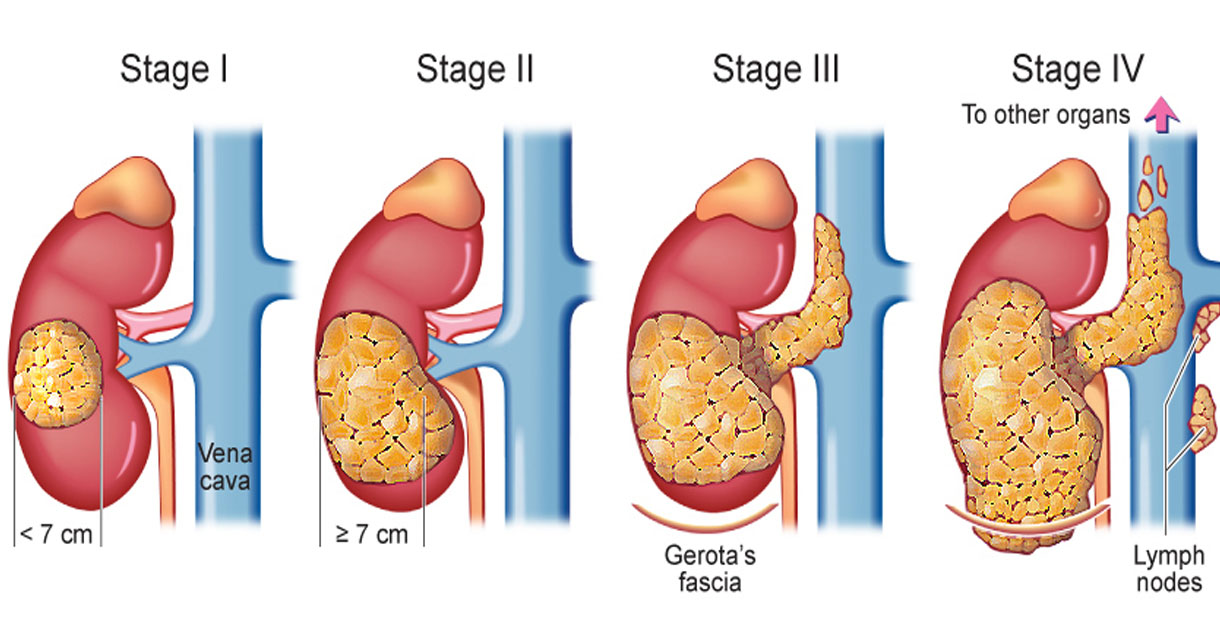Kidney Cancer Treatment in Portugal
Search and Compare the Best Clinics and Doctors at the Lowest Prices for Kidney Cancer Treatment in Portugal

Find the best clinics for Kidney Cancer Treatment in Portugal
No clinics available
Ukraine offers the best prices Worldwide
Price: $ 2,487

- Home
- Portugal
WHY US?
At Medijump, we're making medical easy. You can search, compare, discuss, and book your medical all in one place. We open the door to the best medical providers worldwide, saving you time and energy along the way, and it's all for FREE, no hidden fees, and no price markups guaranteed. So what are you waiting for?

Free

Best Price

Widest Selection

Risk-Free
What you need to know about Kidney Cancer Treatment in Portugal
Treatment for kidney cancer depends on what stage the cancer is at, whether cancer has spread, your age, your overall health, and your personal preference. The most common treatment for this disease is surgery to remove part or all of the kidney. In advanced cases, treatment with a drug may also be used to treat kidney cancer.
What does a Kidney Cancer Treatment Procedure Involve?

There are two types of surgery to treat kidney cancer: surgery to remove the entire kidney (nephrectomy) and surgery to remove the part of the kidney that contains cancer (partial nephrectomy), both are performed under general anesthetic. For small tumors, your doctor may recommend cryoablation (treatment to freeze cancer cells to kill it) and radiofrequency ablation (treatment to burn cancer cells to kill it). If your kidney cancer is at an advanced stage, a drug may be used instead of surgery, such as immunotherapy (uses your own immune system to fight cancer cells), anti-angiogenic therapies (reduce the blood supply to the tumor to slow or stop the tumor’s growth), and targeted therapies (directly inhibit the growth of cancer).
How Long Should I Stay in Portugal for a Kidney Cancer Treatment Procedure?
Your length of stay in Portugal depends on which procedure you underwent. In general, you will need to stay in the hospital for 2 to 7 days and you need to plan to stay in the country for 7 to 14 additional days after surgery. If you only undergo therapy, your length of stay depends on how many cycles are needed for your specific condition.
What's the Recovery Time for Kidney Cancer Treatment Procedures in Portugal?
The total recovery time until you can go back to your normal routine and perform strenuous activities or heavy lifting may take about 6 weeks, but you may be able to return to work within 3-4 weeks if your job is not physically demanding.
What sort of Aftercare is Required for Kidney Cancer Treatment Procedures in Portugal?
Your surgeon will give you detailed instructions to help your recovery, which may include exercises, restrictions, wound care, and diet. You may need to attend regular checkups with your local doctor to monitor your condition. It is really important to eat well and get good nutrition during and after cancer treatment to avoid weight loss and to regain strength.
What's the Success Rate of Kidney Cancer Treatment Procedures in Portugal?
The success rate for kidney cancer treatment depends largely on the stage of cancer and how early the treatment is received. The success rate can range from 69% to 93%. There are some side effects and risks that you should be aware of, such as infection, bleeding, damage to other organs, indigestion, hypertension, tiredness, diarrhea, infertility, rash, and shortness of breath.
Are there Alternatives to Kidney Cancer Treatment Procedures in Portugal?
If you have a small tumor or you are too frail for treatment, your doctor may recommend ‘active surveillance,’ which means your tumor is closely watched to see if it grows.
What Should You Expect Before and After the Procedure
Kidney cancer is life-threatening, can spread to other organs, and cause painful symptoms. After successful treatment, the symptoms are relieved and you can get back to a normal life. Living with one kidney may sound frightening, but most people can live just fine and their quality of life is not affected.
Whilst the information presented here has been accurately sourced and verified by a medical professional for its accuracy, it is still advised to consult with your doctor before pursuing a medical treatment at one of the listed medical providers
No Time?
Tell us what you're looking for and we'll reachout to the top clinics all at once
Enquire Now

Popular Procedures in Portugal
Prices Start From $2,487

Prices Start From $39

Prices Start From $2,487

Prices Start From $825

Recommended Medical Centers in Portugal for procedures similar to Kidney Cancer Treatment

- Interpreter services
- Translation service
- Religious facilities
- Medical records transfer
- Medical travel insurance
- Health insurance coordination
- TV in the room
- Safe in the room
- Phone in the room
- Private rooms for patients available

- Interpreter services
- Translation service
- Religious facilities
- Medical records transfer
- Medical travel insurance
- Health insurance coordination
- TV in the room
- Safe in the room
- Phone in the room
- Private rooms for patients available

- Interpreter services
- Translation service
- Religious facilities
- Medical records transfer
- Medical travel insurance
- Health insurance coordination
- TV in the room
- Safe in the room
- Phone in the room
- Private rooms for patients available

- Interpreter services
- Translation service
- Religious facilities
- Medical records transfer
- Medical travel insurance
- Health insurance coordination
- TV in the room
- Safe in the room
- Phone in the room
- Private rooms for patients available

- Interpreter services
- Translation service
- Religious facilities
- Medical records transfer
- Medical travel insurance
- Health insurance coordination
- TV in the room
- Safe in the room
- Phone in the room
- Private rooms for patients available

- Interpreter services
- Translation service
- Religious facilities
- Medical records transfer
- Medical travel insurance
- Health insurance coordination
- TV in the room
- Safe in the room
- Phone in the room
- Private rooms for patients available

- Interpreter services
- Translation service
- Religious facilities
- Medical records transfer
- Medical travel insurance
- Health insurance coordination
- TV in the room
- Safe in the room
- Phone in the room
- Private rooms for patients available

- Interpreter services
- Translation service
- Religious facilities
- Medical records transfer
- Medical travel insurance
- Health insurance coordination
- TV in the room
- Safe in the room
- Phone in the room
- Private rooms for patients available

- Interpreter services
- Translation service
- Religious facilities
- Medical records transfer
- Medical travel insurance
- Health insurance coordination
- TV in the room
- Safe in the room
- Phone in the room
- Private rooms for patients available
Kidney Cancer Treatment in and around Portugal
Introduction
Portugal is a country located in southwestern Europe. It’s one of the oldest nation-states of Europe and the world. Its territory had been continuously invaded, settled, and fought over since prehistoric times. Today, the country has become a major tourist destination, with its architecturally stunning cities, cobblestone villages, medieval castles, great food, stunning beaches, and incredible weather. Besides its beauty, Portugal is also attracting people from all around the world for its healthcare. The country offers a combination of state-of-the-art private medical centers, with spotless facilities and private rooms, a wide range of procedures, with very short waiting lists, as well as highly trained patient-oriented medical teams who are fluent in different languages. The physicians in this country have been trained by high standard medical schools, where just top and talented students are allowed to attend.
Popular Cities and Regions in Portugal
Lisbon is the capital and the largest city in Portugal. This city is filled with friendly people, history, mystique, and amazing food. Explore its many beautiful churches, listen to Fado, take a trip to the Castle of St. Jorge, see Sintra, and have some fun in one of its nightclubs. Another popular destination is Batalha, which is home to the UNESCO-listed Batalha Monastery. The monastery was build from 1386 to 1517 and is known as the greatest Gothic masterpieces in Europe. Those who want to party or soak up the sun should visit Lagos, while those who love to wander around and visit museums should visit Porto. Both of these cities are popular and fascinating.
Transport in Portugal
International tourists usually arrive at Lisbon Airport. It is a hub for low-cost airlines EasyJet and Ryanair, and it serves flights to numerous cities around the world. To get around Portugal, trains and buses are very efficient. While trains are often cheaper, buses are usually quicker. Taxis are available in almost every city and are relatively cheap.
Visas in Portugal
Since Portugal is part of the Schengen Area, citizens of 62 countries, including the US, Australia, the UAE, and Canada, are allowed to visit without a visa for up to 90 days. Citizens of most other countries are required to obtain a Schengen visa to visit the country.
Weather in Portugal
From March to May it is spring and the weather is pleasant but there will likely be some heavy rain. Summer, is from June to mid-September, can be scorching hot with temperatures rising to mid 30oC. Autumn, starts from mid-September to December and it brings colder temperatures but and an increased chance of rain. Winter can get quite cold and the days are shorter and always expect rain and storms during this season.
Additional Info
- Local Currency: The euro is the official currency. 1 EUR is equivalent to 1.08 USD.
- Money & Payments: ATMs are widely available, except in small villages. Credit cards are often accepted at midrange and high-end establishments. Tipping is usually expected at hotels and restaurants.
- Local Language: The official language is Portuguese. However, English, French, and Spanish are widely spoken in the country.
- Local Culture and Religion: Christianity is the major religion of the country. Other religions are practiced by a small portion of the population.
- Public Holidays: Portugal Day, Restoration of Independence, and Christmas Day are some of the public holidays celebrated in Portugal.
Popular Searches
- Plastic Surgery in Thailand
- Dental Implants in Thailand
- Hair Transplant in Thailand
- Breast Augmentation Thailand
- Gastric Sleeve in Thailand
- Gender Reassignment Surgery in Thailand
- Laser Hair Removal in Bangkok
- Botox in Bangkok
- Dermatology in Bangkok
- Breast Augmentation in Bangkok
- Coolsculpting in Bangkok
- Veneers in Turkey
- Hair Transplant in Turkey
- Rhinoplasty in Turkey
- Stem Cell Therapy in Mexico
- Rhinoplasty in Mexico
- Liposuction in Mexico
- Coolsculpting in Tijuana
- Rhinoplasty in Korea
- Scar Removal in Korea
- Gastric Sleeve in Turkey
- Bone Marrow Transplant in India
- Invisalign in Malaysia
- Plastic Surgery in the Dominican Republic
- Tummy Tuck in the Dominican Republic
- Plastic and Cosmetic Surgery in Poland
- Rhinoplasty in Poland
- Hair Implant in Poland
- Dental Implants in Poland
- IVF in Turkey